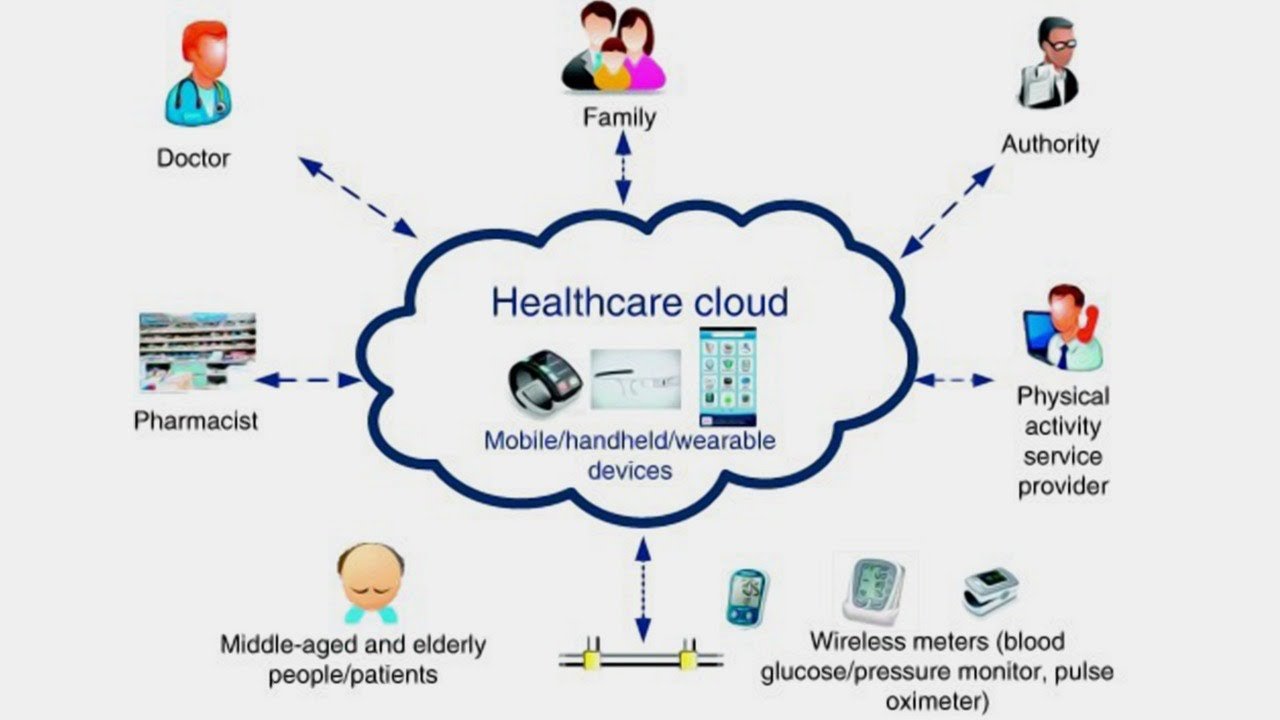Cloud Computing in Healthcare: The Medical Industry

In today’s fast-paced world, the healthcare industry has embraced technological advancements to enhance patient care, streamline operations, and improve overall efficiency. One such innovation making waves is Cloud Computing in Healthcare. This comprehensive article delves into the fascinating realm of Cloud Computing in Health, exploring its various facets, advantages, and potential challenges. Join us on this informative journey to understanding how this groundbreaking technology revolutionizes the medical field.

The Power of Cloud Computing
- Harnessing the Cloud for Medical Data Management
Cloud Computing in Healthcare involves the utilization of remote servers to store, manage, and process medical data securely. This innovative approach allows healthcare providers to access patient records and critical information from anywhere, ensuring timely and informed decision-making.
Improved Patient Care Through Cloud-Based Solutions
Cloud-based applications and Electronic Health Records (EHRs) facilitate real-time collaboration among healthcare professionals. This seamless communication enhances patient care, leading to quicker diagnoses and personalized treatment plans.
Benefits of Cloud Computing in Healthcare
- Enhanced Accessibility and Flexibility
The cloud’s accessibility ensures medical data is available to authorized personnel 24/7. This flexibility allows healthcare providers to deliver patient care without being bound to a specific location.
Cost-Efficiency and Scalability
Cloud-based solutions eliminate the need for extensive on-site infrastructure, reducing operational costs significantly. Furthermore, the scalability of cloud services allows healthcare organizations to adapt to changing demands effortlessly.
Data Security and Privacy
Cloud service providers implement robust security measures, including encryption and access controls, to protect sensitive medical data. These safeguards ensure compliance with healthcare regulations and maintain patient confidentiality.

Challenges in Implementing
- Data Privacy Concerns
While the cloud offers advanced security features, concerns about data breaches and unauthorized access remain. Healthcare organizations must continuously monitor and update security protocols to mitigate risks.
Interoperability Issues
Integrating existing systems with cloud-based solutions can be challenging. Ensuring seamless communication between different platforms and vendors is essential for the success of Cloud Computing in Health.
Reliability and Downtime
Dependence on cloud services raises concerns about downtime. Healthcare providers must have contingency plans to ensure uninterrupted access to critical patient information.
Cloud Computing in Healthcare: Future Prospects
- Artificial Intelligence and Predictive Analytics
Integrating AI and cloud computing promises predictive analytics that can revolutionize disease prevention and treatment. By analyzing vast datasets, AI can identify patterns and provide valuable insights for healthcare providers.
Telemedicine and Remote Monitoring
Cloud-based telemedicine platforms enable remote consultations and real-time patient monitoring. This advancement has become especially critical during global health crises, allowing healthcare professionals to reach needy patients.
Conclusion
Cloud Computing in Healthcare is not just a buzzword but a transformative force reshaping the medical industry. With its ability to enhance accessibility, improve patient care, and provide cost-effective solutions, it has become an indispensable tool for healthcare organizations worldwide. While challenges exist, the future holds promise with AI integration and expanded telemedicine capabilities. As we navigate this digital healthcare landscape, one thing is sure: Cloud Computing in Health is here to stay, delivering better healthcare outcomes for all.
Rate our Post (Cloud Computing in Healthcare: The Medical Industry)How much do you like our Article








